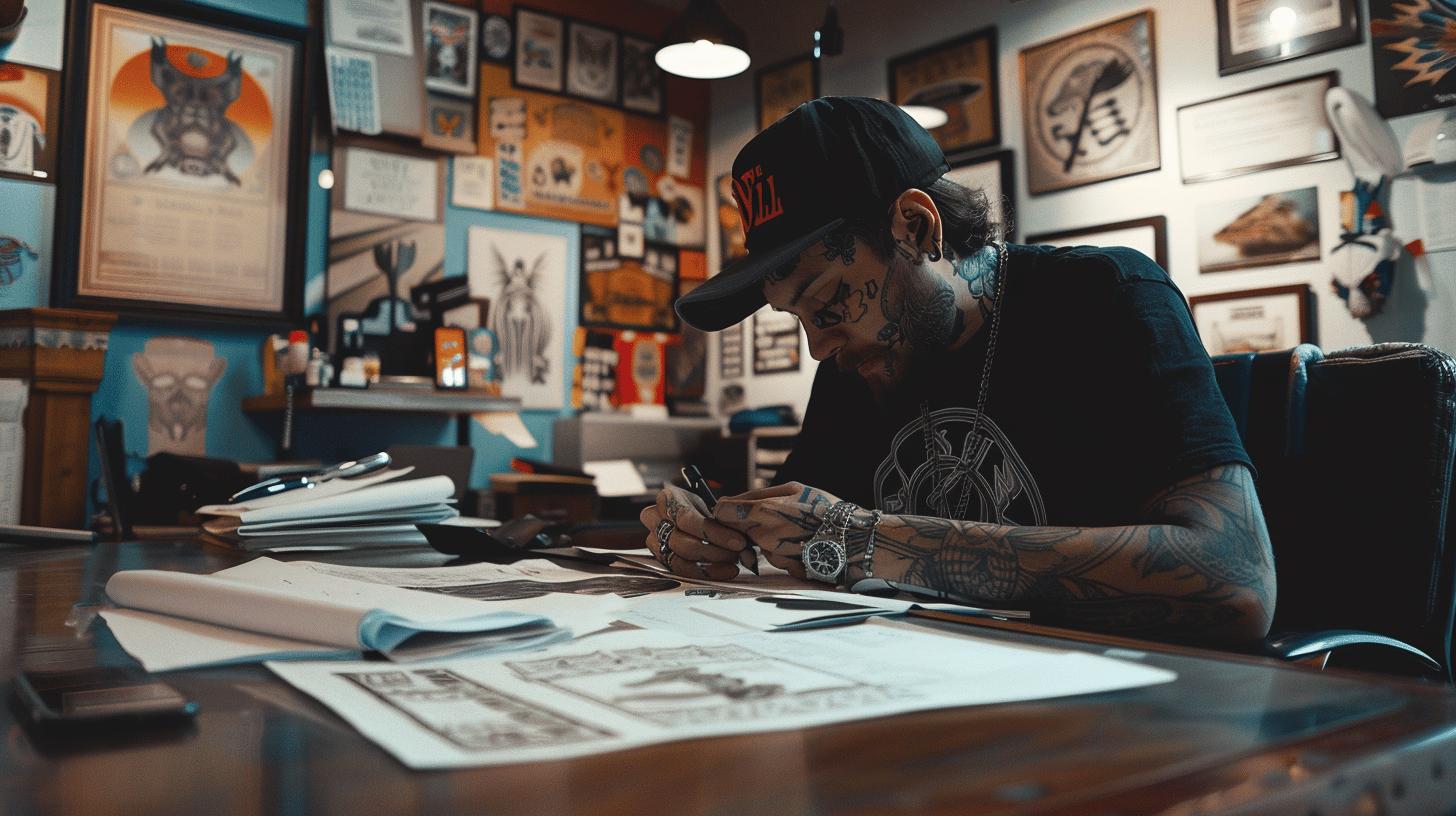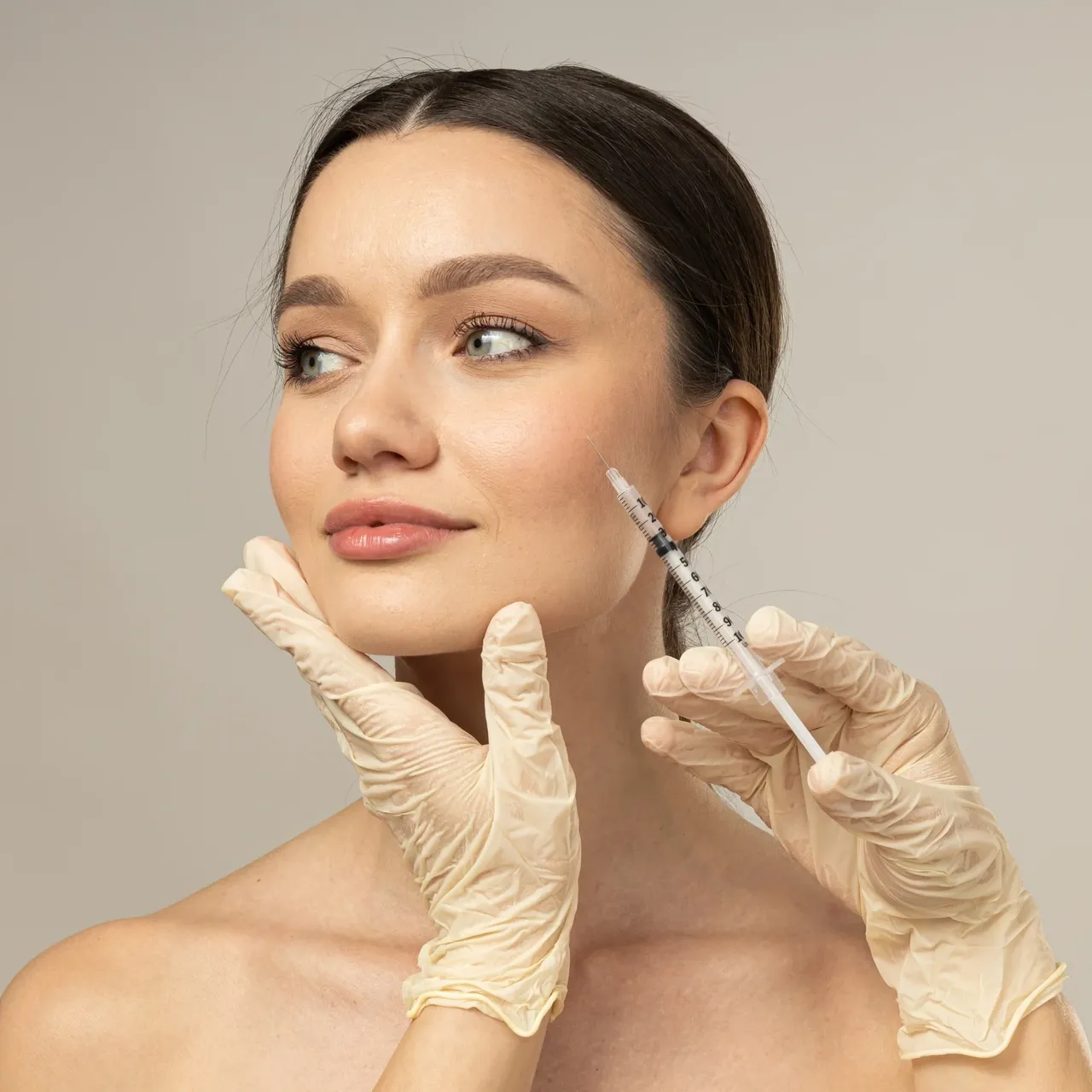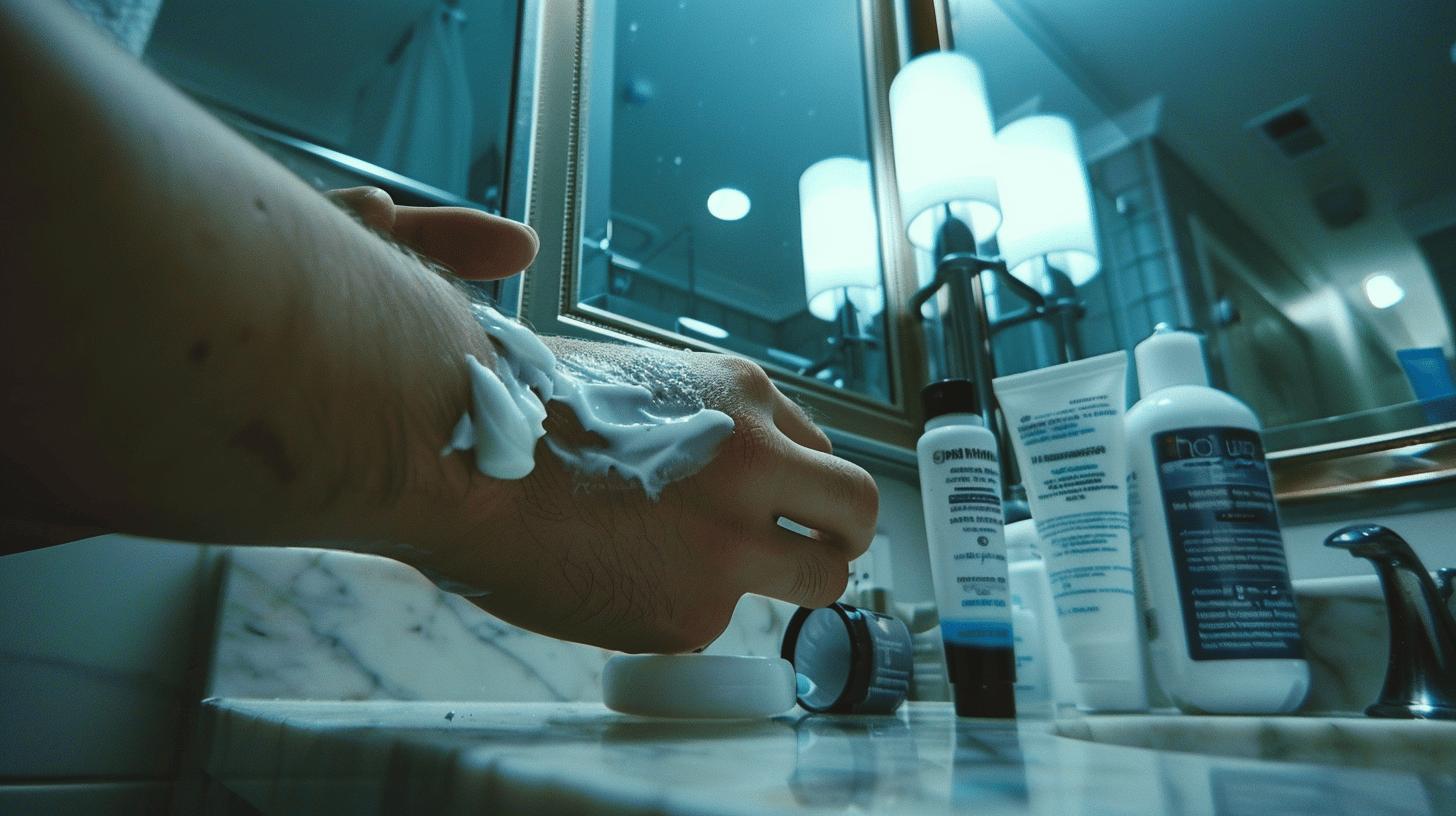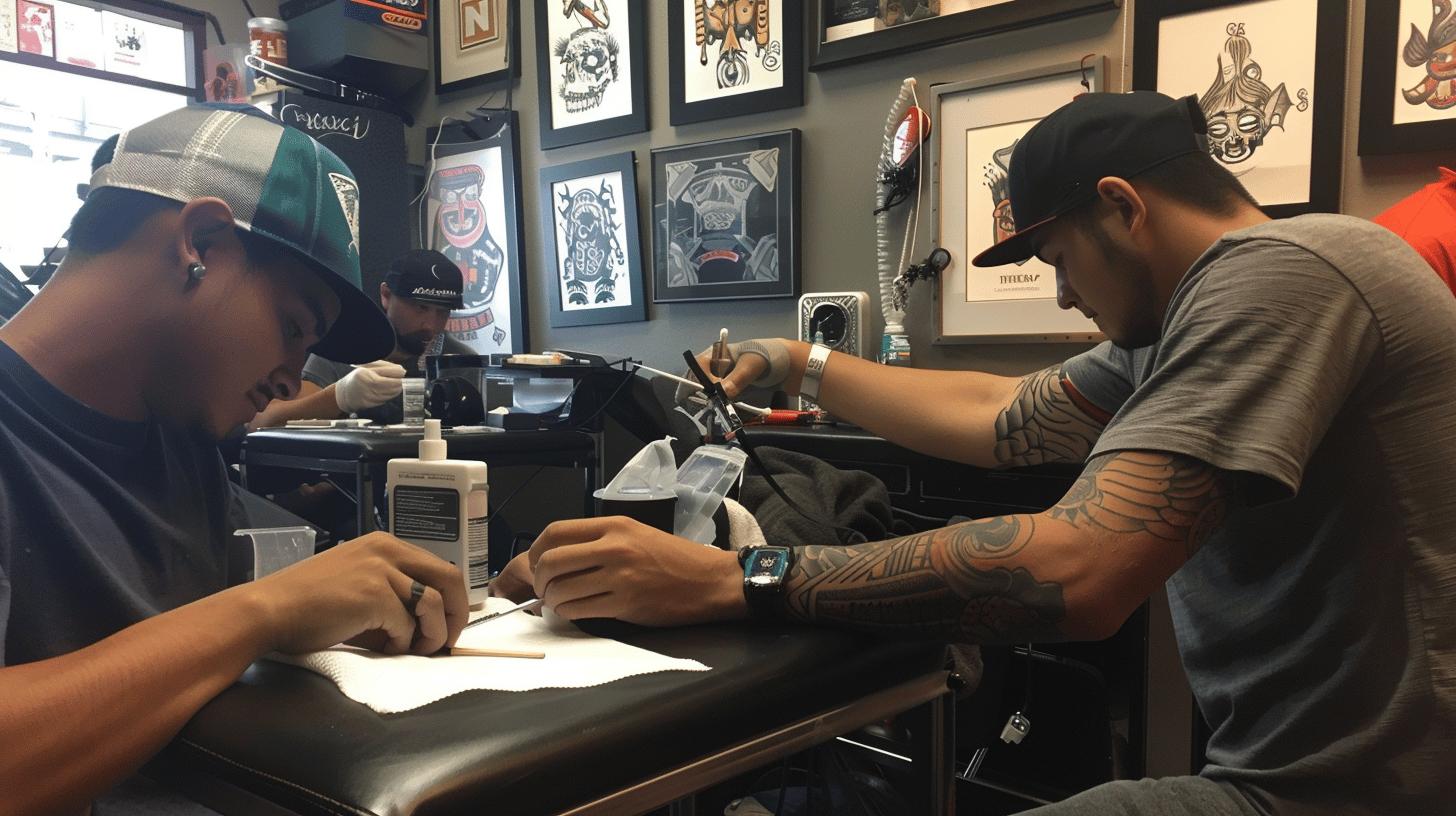UK Tattoo Laws: Licensing, Age Restrictions, and Studio Safety
Can you legally tattoo someone’s child if the parent agrees? Absolutely not—and doing so could get you prosecuted. Under UK legislation, the Tattooing of Minors Act 1969 makes it a criminal offence to tattoo anyone under 18, and no form of parental consent overrides that. Whether you’re a new tattoo artist opening your first studio, or a seasoned pro with years under the machine, ignoring tattoo consent laws UK-wide could land you in serious trouble. This guide to 10 tattoo laws every UK tattoo artist must know covers licensing rules, legal tattoo age, safety, and the strict rules around tattooing and body piercing in England.
Tattoo Laws UK: Legal Age Limits, Parental Consent and the Tattooing of Minors Act 1969
Is it illegal to tattoo minors in the UK?
Yes. Under the Tattooing of Minors Act 1969, it is a criminal offence to tattoo a person under 18 years of age in the UK. This legislation applies across England, Wales, Scotland, and Northern Ireland. The law was introduced to regulate the practice of tattooing and to protect young people from potentially unsafe procedures. It prohibits any tattoo practitioner from tattooing a person under 18 unless it is carried out for medical reasons by a duly qualified medical practitioner. Violation of this legislation can result in prosecution and a fine.
Can a parent or guardian give permission for someone under 18 to get a tattoo?
No. Parental consent does not make it legal to tattoo anyone under the minimum age of 18. The law is clear: even with written or verbal permission from a parent or guardian, a tattoo artist cannot legally tattoo a person under 18. This rule is strict and leaves no room for interpretation. The age of consent for tattooing is fixed, and the prohibition of child tattooing is absolute.
How do studios verify age before carrying out tattoos?
Studios are legally required to confirm that clients meet the legal age for tattoos UK—that is, they must be at least 18 years old. Most councils and local authorities require studios to keep a copy of the client’s ID alongside a signed consent form as part of their tattoo consent laws UK. These records are checked during health and safety inspections and must be stored securely to comply with data protection regulations.
Acceptable forms of ID include:
- Passport
- Photocard driving licence
- CitizenCard (with PASS hologram)
- Military ID
- EU/EEA national ID card
Studios failing to follow these tattoo laws for minors UK risk losing their licence, being fined, or facing legal action by their borough council.
Tattoo Licensing UK: How Tattoo Artists and Studios Must Apply and Comply
Do tattoo artists need a licence in the UK?
Yes. Tattoo artists must hold a valid licence issued by their local council. Under UK tattoo legislation, both the tattoo practitioner and the tattoo studio must be registered and licensed separately. This applies across England, Scotland, Wales, and Northern Ireland. Tattooing without a licence is illegal and can result in prosecution, including a fine or closure of the premises. The licence ensures that the tattoo and piercing service is carried out in a safe, hygienic, and controlled environment.
What’s the difference between licensing for studios and mobile tattooing setups?
Permanent studios must register the fixed premises where tattooing and body piercing take place. This includes an inspection by the borough council to check compliance with health and safety standards, such as hygiene, equipment sterilisation, and infection control.
A mobile tattoo licence is required for any practitioner offering tattooing away from a permanent studio—such as at events, conventions, or private homes. Mobile setups must still meet tattoo studio regulations UK standards and are often subject to stricter scrutiny. Some councils may not permit mobile tattooing at all, or may impose additional licensing conditions.
Tattoo Licence Requirements by Studio Type
| Studio Type | Licence Type | Licence Needed By | Issuing Authority | Renewal Period |
|---|---|---|---|---|
| Permanent Studio | Studio & Practitioner Licence | Owner & Each Tattoo Artist | Local Council | Varies by Council |
| Mobile Tattoo Unit | Mobile Practitioner Licence | Operator | Local Council | Annually (typical) |
| Home-Based Studio | Premises & Practitioner Licence | Resident Practitioner | Local Council | Varies by Council |
| Guest Artist | Temporary Practitioner Licence | Visiting Artist | Hosting Council | Per Event or Visit |
| Convention Booth | Temporary Mobile Licence | Each Practitioner | Event Location Council | Per Event |
Licensing requirements help maintain public safety, prevent the spread of hepatitis B and HIV, and support consistent tattoo license requirements UK-wide. Artists are advised to contact your local council for up-to-date guidance on how to apply, what fees apply, and how to stay compliant with tattoo licensing UK law.
Tattoo Health and Safety Laws UK: Studio Inspections, Hygiene Rules and Regulations
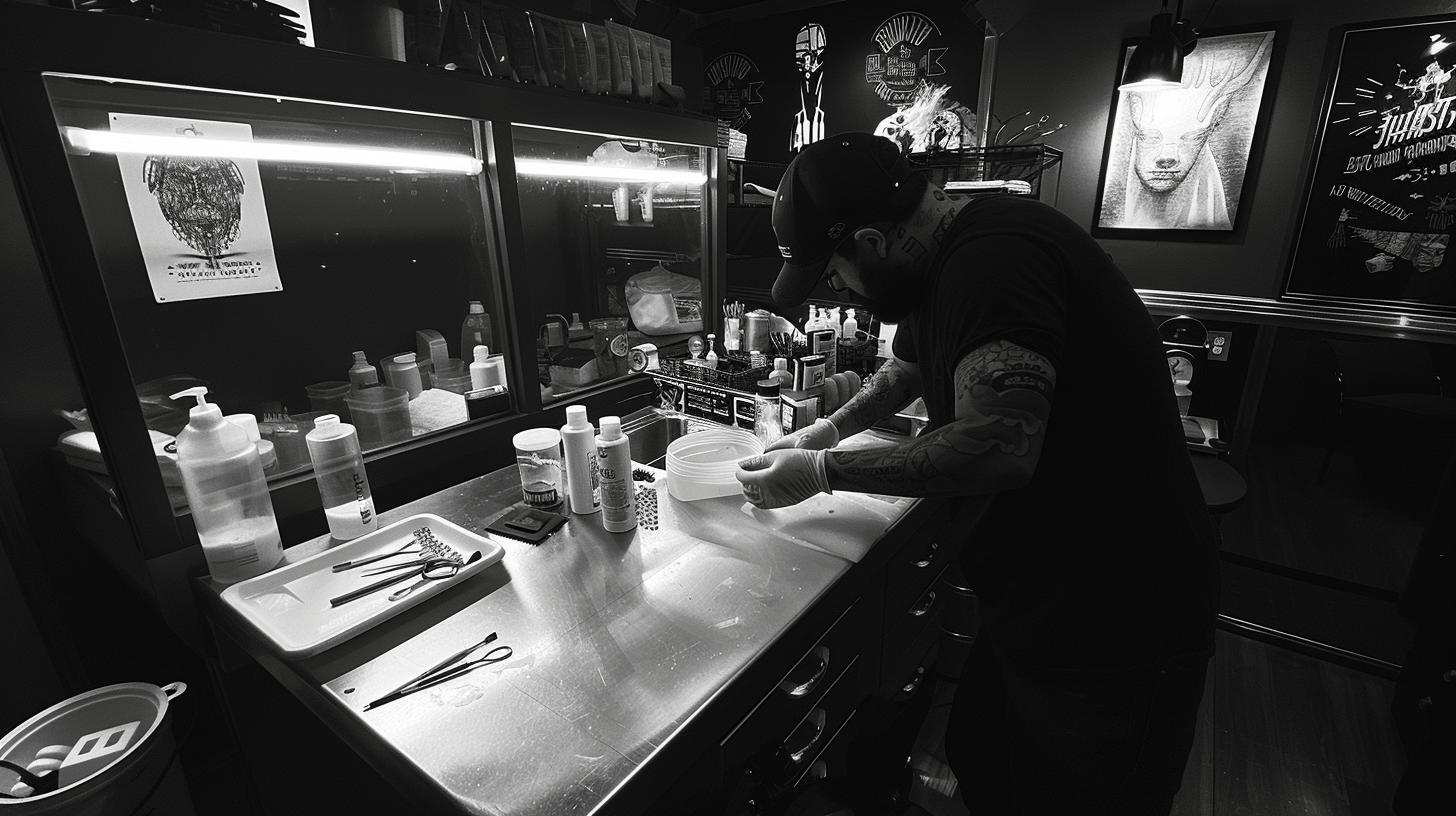
Who regulates tattoo studio hygiene in the UK?
Local authorities, through their environmental health departments, are responsible for enforcing tattoo health and safety laws. Tattoo and piercing studios must register with their local council and comply with strict hygiene and sanitation standards. These rules are based on guidance from Public Health England and the Chartered Institute of Environmental Health. The aim is to prevent the spread of infections, including hepatitis B and HIV, and to maintain safe tattooing and body piercing environments.
What do environmental health officers look for during a tattoo shop inspection?
Officers inspect both the premises and the practitioner’s methods. They check that all tattoo health regulations UK-wide are being followed, focusing on cleanliness, sterilisation procedures, and overall safety. These inspections are usually unannounced and may take place annually or more frequently, depending on the risk rating of the studio. Repeat violations or failure to meet tattoo hygiene regulations UK standards can lead to enforcement action, including warnings, improvement notices, or prosecution.
Key Health & Safety Requirements for Tattoo Studios
- All reusable equipment must be properly sterilised using an autoclave
- Practitioners must wear disposable gloves and PPE during procedures
- Clinical waste must be stored and disposed of in accordance with waste management laws
- Studios must have accessible handwashing facilities with antibacterial soap
- The premises must be well-ventilated to prevent airborne contamination
- Accurate, dated records must be kept for each client, including consent forms and proof of age
What happens if a studio fails inspection?
Studios that do not meet tattoo safety standards UK regulations may be issued an improvement notice or ordered to stop trading until the issues are resolved. In serious cases, a fine may be imposed, or the licence may be revoked entirely. Operating a tattoo studio without meeting hygiene and safety laws is illegal and can carry legal consequences under UK legislation.
Tattoo Law Penalties: Fines and Legal Action for Illegal Tattooing in the UK
What are the penalties for tattooing a minor or operating without a licence in the UK?
Tattooing a person under 18 years of age or performing tattooing and body piercing without the correct licence is a criminal offence. Tattoo practitioners who ignore the minimum age restriction or fail to register with their local council can face prosecution, a fine, or have their studio shut down. UK legislation under the Tattooing of Minors Act 1969 is enforced across England, Wales, Scotland, and Northern Ireland.
Operating without a licence—whether in a permanent studio or a mobile setup—also breaches council tattooing laws UK, and may result in legal action, business closure, or a criminal record. These penalties are intended to protect the public from unsafe tattoo and piercing practices and reduce the risk of infection such as hepatitis or HIV.
What happens if a client uses fake ID to get a tattoo underage?
Providing fake ID for tattooing is also illegal. While the legal burden falls mostly on the tattoo artist, clients who try to bypass the age limit by using false documents can face penalties including police involvement. This may include a warning, a fine, or charges for fraud, depending on the circumstances and the local authority. Studios are required to take reasonable steps to verify age and store valid photo ID alongside consent forms to comply with health and safety regulations.
How to Report Illegal Tattooing
- Who to contact: Report concerns directly to the borough council where the studio or individual operates
- What evidence is needed: Dates, names, photos, social media posts, or witness statements can support the report
- Are reports anonymous: Yes, most councils accept anonymous complaints, though contact details help with investigation
- What happens after a report: An environmental health officer may inspect the premises or launch a formal investigation
Can tattoo studios appeal if wrongly penalised?
Yes. Studios have the right to challenge enforcement if they believe they’ve been penalised unfairly. Most councils provide formal tattoo appeal processes UK, which may involve submitting evidence, attending a hearing, or requesting a second inspection. Studios can also use tattoo complaint procedures UK to raise concerns about how their case was handled.
Tattoo Age Laws by Country: International Tattoo Legislation and Regional Differences
Are tattoo age laws in the UK the same across all regions?
No. The Tattooing of Minors Act 1969 sets a national minimum age of 18 across England, Scotland, Wales, and Northern Ireland, making it illegal to tattoo a person under the age of 18. This UK-wide legislation prohibits tattooing minors, regardless of parental consent.
While the age limit is fixed at 18, local councils may add their own regulation or guidance through bylaws. These local rules don’t change the minimum age, but they can impose stricter licence conditions on tattoo and piercing studios—in areas like health and safety, record keeping, or inspection frequency.
Do tattoo laws vary between London and Manchester?
Yes. Regional tattoo laws London and regional tattoo laws Manchester differ in how they are enforced. For example, some borough councils in London require more frequent inspections or additional registration requirements for mobile tattoo artists. In Manchester, the local authority may focus more on hygiene and waste disposal standards.
These differences reflect local priorities and how individual councils interpret and enforce national tattoo rules and regulations UK. Studios in each area must apply for a licence through their own planning authority and follow council-specific procedures.
Notable International Tattoo Laws
- Denmark – Tattooing on the face, neck, and hands is banned, though enforcement is limited
- South Korea – Only a duly qualified medical practitioner can legally tattoo a person
- Germany – No federal minimum age, but most states follow the 18 standard; parental consent is not accepted
- USA – Tattoo laws vary by state; some allow minors with parent or guardian permission, others require 18+
- Australia – Each state sets its own laws; most require clients to be 18 or older, with strict ID checks
How do cultural attitudes influence tattoo age laws?
Countries with strong public health systems or conservative cultural views tend to enforce stricter rules on tattooing and body piercing. In places like South Korea, tattoos are seen as a medical procedure, while in the USA and Germany, there’s more variation and local discretion. Cultural acceptance often shapes how strictly international tattoo legislation is written and enforced.
Tattoo Consent Forms and Client Documentation Laws in the UK
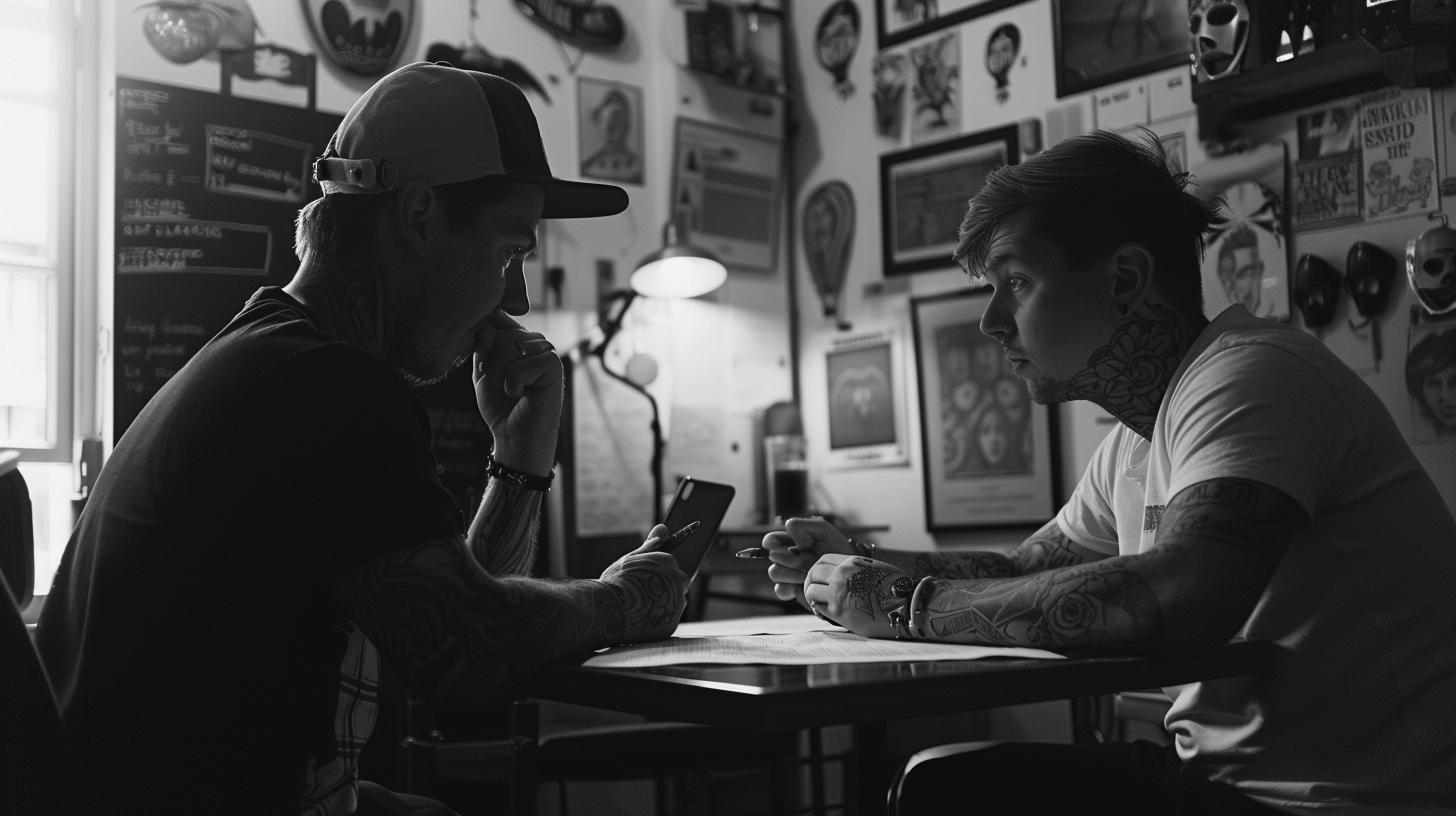
What documents must UK tattoo artists legally collect from clients?
Tattoo consent forms UK-wide are a legal requirement for every client before any tattooing and body piercing procedure begins. These forms confirm that the client understands the process, risks, and aftercare involved. They typically include the client’s full name, contact details, medical history, and a declaration that they are over the minimum age of 18 years of age.
Consent forms are part of wider tattoo documentation laws that help protect both the tattoo artist and the client in case of disputes or legal claims. They are also essential for satisfying local authority inspections and maintaining tattoo register compliance UK regulations. Studios must store these forms securely to comply with tattoo data protection UK standards.
How do studios verify proof of age for tattoo UK clients?
Before any procedure, studios must verify that the client is not a person under the age of 18. Acceptable proof of age for tattoo UK clients includes photographic ID such as passports, driving licences, or government-issued cards. A clear photocopy of the ID must be taken and stored with the signed consent form.
Tattoo and piercing studios are required to keep these records on file for a minimum of two years. During inspections by local authorities or borough council officers, studios must present these documents to prove legal compliance. Improper record storage or missing documentation can result in enforcement action, including a fine or suspension of the practitioner’s licence.
| Document | Purpose | Retention Period | Legal Requirement |
|---|---|---|---|
| Signed Consent Form | Confirms client understanding and agreement | 2 years minimum | Yes |
| Photocopy of ID | Proves client is 18 or over | 2 years minimum | Yes |
| Medical Disclosure | Identifies health risks or contraindications | 2 years minimum | Yes |
| Procedure Record | Details of service, date, and practitioner | 2 years minimum | Yes |
Tattooing at Home: Legal Status of Non-Studio Tattooing in the UK
Is tattooing at home legal in the UK?
Yes, tattooing at home is legal in the UK only if the practitioner holds a valid tattoo licence and the home premises meet local council hygiene and safety standards. Tattoo artists must register the home location as a licensed premise and be inspected by the borough council. If the home setup fails to meet the same health and safety requirements as a permanent studio, tattooing there becomes illegal.
Tattooing and body piercing outside of a licensed and inspected environment increases the risk of infection, including hepatitis B and HIV. That’s why local legislation treats home tattooing the same way it treats any other professional studio. Artists must apply for a licence that covers both the individual practitioner and the home-based premises.
What are the risks and penalties for illegal home tattooing?
Tattooing without a licence or in an unregistered home setup is a criminal offence under UK tattoo regulations. Practitioners found operating illegally can face prosecution, a fine, or be banned from offering tattoo and piercing services. Even if the artist has professional experience, tattooing without council approval breaches lawful tattoo practice regulations.
Unlicensed tattooing also invalidates public liability insurance, leaving both the client and the tattoo artist vulnerable in case of injury, allergic reactions, or complications.
Legal Requirements for Tattooing at Home
- The tattoo practitioner must hold a valid, current tattoo licence
- The home must be registered as a licensed premise with the local council
- The space must meet full hygiene and cleanliness standards for tattooing
- A council inspection must be passed before tattooing begins
- Public liability insurance is strongly recommended for legal protection
Failing to meet any of these home tattoo regulations UK can result in legal action and loss of the practitioner’s licence to operate.
Tattoo Insurance Requirements UK: Artist and Studio Protection Guidelines
Is insurance legally required for tattoo studios in the UK?
No. Insurance is not legally required for tattoo and piercing studios in the UK. But it is strongly recommended to protect both the tattoo artist and the business from legal liability, injury claims, and equipment damage. Without adequate insurance, studios may face significant financial risks if a client suffers a reaction, sues for negligence, or if tools are lost or damaged.
Studios working under UK tattoo legislation are often advised to hold specific types of cover as a matter of professional responsibility. These include public liability insurance, treatment risk insurance, and employer’s liability. Each of these policies helps manage the risks associated with tattooing and body piercing, including claims linked to allergic reactions, infections such as hepatitis B, or procedural errors.
When is insurance checked by local authorities?
While insurance itself is not enforced by legislation, it may be reviewed during inspections by the borough council or when practitioners apply for or renew a tattoo licence. Having valid insurance is considered good practice under tattoo artist guidelines and may be a condition of approval depending on the local authority. It also supports compliance with broader health and safety standards.
Common Insurance Policies for Tattoo Studios
- Public liability insurance – covers injury or damage claims made by clients or visitors
- Treatment risk insurance – protects against claims linked to tattooing, piercing, or electrolysis procedures
- Employer’s liability – required if employing staff, covers injury or illness caused during work
Studios offering tattooing and body piercing services should seek insurance cover that reflects their treatments and setup—whether it’s a permanent studio or a mobile operation.
Final Words
Tattoo laws in the UK are clear and firmly enforced. The Tattooing of Minors Act 1969 sets the legal age limit at 18, with no exceptions for parental consent. Any studio operating outside this restriction risks prosecution.
Tattoo artists must apply for the correct licence, follow strict health and safety controls, and keep detailed client consent records. Whether the studio is permanent or mobile, licensing and hygiene come under tight legal supervision.
Tattooing without a licence, failing to meet insurance or safety standards, or tattooing underage clients invites serious penalties. Whether you’re running a studio in Manchester or anywhere else in England, understanding legislation, maintaining compliance, and protecting your practice with proper tattoo insurance is key.
Respecting tattoo laws isn’t just about legality — it keeps clients safe, protects your licence, and upholds the reputation of the industry across the UK.
FAQ
Q: What is the legal age limit to get a tattoo in the UK?
The legal age to get a tattoo in the UK is 18. Under the Tattooing of Minors Act 1969, it’s illegal to tattoo anyone under 18—even with parental consent.
Q: Can a 16 or 17 year old get a tattoo in the UK with parental consent?
No, parental consent doesn’t override UK tattoo legislation. Tattooing a person under 18 remains illegal, regardless of permission from a parent or guardian.
Q: Is it illegal to tattoo a person under 18 in England?
Yes, under current UK tattoo laws, it’s a criminal offence to tattoo anyone under the age of 18 years for non-medical reasons.
Q: What are the UK tattoo licence requirements for artists and studios?
Tattoo artists and studios must apply for a licence through their local authority. Both the practitioner and the tattooing premises must have a valid, registered licence to operate legally in the UK.
Q: Can mobile tattooists legally operate anywhere in the UK?
Mobile tattoo practitioners must apply for a specific mobile tattoo licence. This includes meeting local borough council health and safety and infection control requirements.
Q: What tattoo health and safety regulations must studios follow?
Studios must pass routine inspections for hygiene, sterilisation, cleanliness, and infection control. They must also comply with environmental health laws enforced by borough councils.
Q: Are studios in England required to verify age before tattooing?
Yes, studios must check photo ID to confirm a client is at least 18 years of age. Acceptable forms include passport, driving licence, or official ID showing date of birth.
Q: What are the penalties for tattooing without a licence in the UK?
Tattooing without a valid licence can lead to fines, prosecution, and closure of the studio. Local councils enforce these legal restrictions under public health legislation.
Q: Is tattooing at home legal in the UK?
Yes, but only if the practitioner holds a valid licence and the home setup complies with studio health and safety standards. Unlicensed home tattooing is illegal.
Q: Are there different tattoo laws in London, Manchester, or other UK regions?
While national legislation sets the minimum age at 18, some local councils—like those in Manchester or London—may apply more stringent tattoo and piercing guidelines or inspection rules.
Q: Can clients face legal consequences for using fake ID to get tattooed?
Yes, presenting forged or false documents to prove you’re 18 can result in penalties. Studios are required to refuse service and may report suspicious documents to the council.
Q: What insurance do UK tattoo artists and studios need?
Although not legally required, tattoo artists are advised to have public liability insurance, treatment risk insurance, and employer’s liability cover to protect against injury claims or property damage.
Q: Do tattoo studios need to keep client records in the UK?
Yes, studios must store signed tattoo consent forms and valid proof of age. These documents are reviewed during studio inspections and help with legal and health compliance.
Q: How can someone report illegal tattooing activities?
Contact your local council’s environmental health team. You’ll need to give the name, address, and any evidence like photos. Reports can often be made anonymously.
Q: What documentation is required to apply for a tattoo licence in the UK?
Applicants usually need to provide ID, proof of premises registration, hygiene certificates, and may undergo infection control checks by the local council or public health officers.

